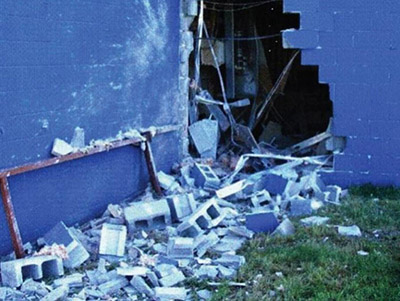
During a compressed air assessment, a service provider was reviewing the total capacity of the storage receivers for his report. Having adequate capacity helps make the compressors run more efficiently and saves energy. During his checks, he spotted a strange color on one receiver safety valve. On closer inspection, he noticed that the pressure relief valve on the tank had been wrapped with electrical tape — preventing any air from escaping!
On further investigation, he was told that the valve was constantly blowing off and disturbing the nearby workers … so some employee took matters into their own hands and silenced the noise with tape. What they didn’t realize was in doing so they had created a huge safety risk.
Further checking of data captured during the assessment data logging showed that a malfunction of one of the compressors was causing the pressure to rise in an uncontrolled manner to very high levels, exceeding the rating of the storage receiver. This was the reason the valve was blowing off. This safety issue was very quickly resolved and the employee disciplined.
Compressed air storage receiver failures can cause significant damage to property and death to those nearby due to the high potential energy released during a tank failure. For this reason, stringent safely standards have been set in place in most areas of the world after enduring a significant number of deaths over the early years.
Some tips on receivers:
- The storage tanks must meet local safety standards and be fitted with a properly sized pressure relief valve,
- The PRV should be tested regularly,
- The receivers should be inspected regularly for damage or corrosion,
- All wet receivers should have a working condensate drain,
- Receivers should be protected from contact with moving objects and machinery,
- The operation of the air compressors should be checked to ensure proper pressure is maintained that is under the rating of the lowest rated storage tank, and
- Outdoor storage tanks should not be used where temperatures can reach lower than their temperature rating as the steel will become brittle.

The amount of energy stored in a compressed air tank is very great, The hazard from failure is rather understated in this article. Not just “death”, but an extremely violent death.
I recommend redundant relief valves, and as an added precaution, selecting interconnection hoses with burst pressures less than the pressure tank maximum rating..